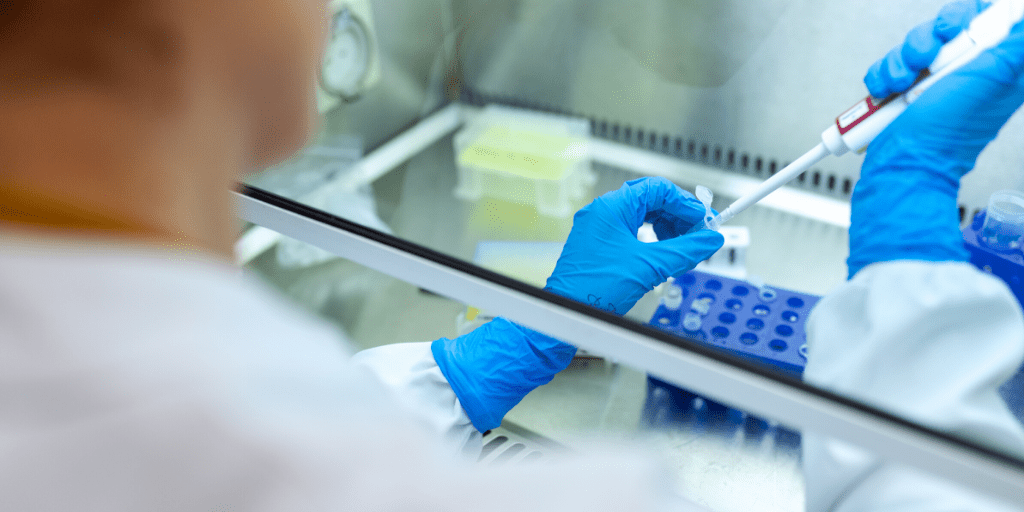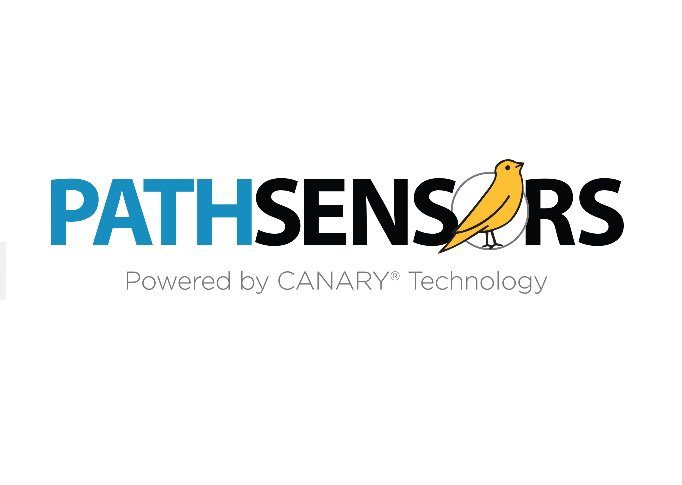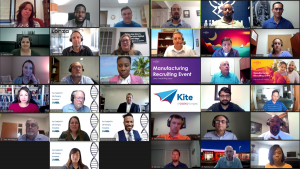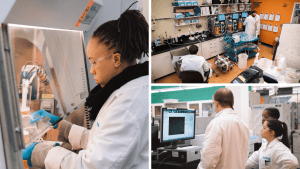
7 BioHealth Capital Region Diagnostics Companies Leading the Fight Against COVID-19
Prominent research universities and government agencies are keeping the public abreast of the scope of the coronavirus pandemic as well as the reported outcomes of identified cases.
Major media outlets are doing their best to share information in real-time, but often portray spiking case numbers in hotspots like New York City as the accelerating spread of COVID-19. The reality, in many states across the U.S., is that COVID-19 has already infected large swaths of the population, so the coronavirus is not necessarily “spiking” but rather being revealed through better diagnostics and wider access to COVID-19 testing.
Understanding the difference between media reports of sudden spread and spikes versus reporting on stronger testing and therefore the identification of more cases is critical to flattening the curve.
When communities think in terms of spikes and sudden conflagrations of COVID-19 they might think self-distancing isn’t needed if the community where they reside only has a handful of confirmed cases. If communities approach COVID-19 already assuming it is in their community in larger numbers that haven’t yet been identified through diagnostics and testing, they are more likely to stay home, self distance and contribute to flattening the curve.
This is why accurate diagnostics are so critical to stemming COVID-19.
Strong, widely available and easily accessible testing not only gives scientists the data they need to develop vaccines and potential therapies, but it also avoids the perception that COVID-19 isn’t already present in communities in higher numbers than have been confirmed.
If testing is pervasive and strong at the start of an outbreak, our ability to flatten the curve via new scientific discoveries and modified behaviors increases dramatically.
This is why the diagnostics work being done by these 7 BioHealth Capital Region (BHCR) organizations is so important and should be lauded in this time of uncertainty and crisis.
Qiagen Labs

Qiagen Labs, which has a location in Germantown, Maryland, is ramping up the manufacturing of sample processing kits for COVID-19 and adding the new coronavirus to its infectious disease test panel. With a large, global operations network, Qiagen is uniquely positioned to rapidly respond to COVID-19 diagnostic needs across the world.
At the end of February, Qiagen sent its QIAstat-Dx Respiratory Panel 2019-nCoV test kit to four hospitals in China for testing. This panel is able to identify SARS-CoV-2 from other respiratory illnesses. Since then, Qiagen has shipped its panel to Europe, Southeast Asia, and the Middle East. The company began shipping its QIAstat-Dx Respiratory Panel 2019-nCoV test to the U.S. in late March and received FDA EUA (emergency use authorization) approval on March 31. The panel is the first syndromic testing solution deployed during the pandemic and produces results typically within one hour.
In addition, the company has been providing instruments and consumables to countries around the world to aid in the fight against COVID-19. Qiagen is also at the forefront of providing labs with laboratory-developed tests (LDTs), mid and high-throughput automation and two new real-time RT-PCR (real-time reverse transcription-polymerase chain reaction) tests deployed for research into COVID-19.
Qiagen’s ability to scale up rapidly has made significant contributions to coronavirus testing capacity and has empowered clinicians across the globe to better combat COVID-19.
Thermo Fisher Scientific

Thermo Fisher Scientific is a global life science company with over 600 locations, including multiple locations within the BHCR.
The company received FDA EUA approval for its COVID-19 test in mid-March. The test, which is based on Applied Biosystems TaqPath Assay technology, is being used by CLIA (Clinical Laboratory Improvement Amendments) high-complexity laboratories in the U.S. to detect nucleic acid from SARS-CoV-2, the virus that causes COVID-19. The test produces results in four hours.
Thermo Fisher and Roche are leading the charge to scale up production and distribution of test kits on a global scale. Thermo Fisher projects that it will be able to produce approximately 5M tests a week starting in April 2020. Locally, Thermo Fisher is making a big hiring push in Frederick, Maryland to help produce and ship its COVID-19 test.
BD (Becton Dickinson)

BD, a global medical technology company with an office in Cockeysville, Maryland, recently announced in mid-March that it had submitted for FDA EUA approval a COVID-19 test developed in partnership with BioGX. The test, if approved, would help increase testing capacity in the U.S. by thousands of tests per day.
According to BD and BioGX’s press release on the matter, “The tests will be run on the BD MAX™ Molecular Diagnostic Platform, which is already in use in nearly every state across the U.S. at hundreds of laboratories, with each unit capable of analyzing hundreds of samples per day. The system is fully automated, reducing the opportunity for human error and increasing the speed to result.”
As of the writing of this story, the test has not yet received FDA EUA approval.
20/20 Gene Systems

20/20 Gene Systems, based in Rockville, Maryland and its BioResponse division have imported a CE-marked, rapid diagnostic test kit for emergency use in the U.S. The blood test is called CoronaCheck and identifies antibodies to COVID-19 within 15 minutes.
The test has been imported from China and has not been reviewed by the FDA. The test is for professional health care providers only. 20/20 Gene Systems is working on submitting an FDA EUA application for retail, consumer use version of the test. While the test has not been FDA reviewed, it has been widely deployed in Europe and was tested in hundreds of clinical samples in China.
The company’s website states that the first shipment of 15,000 CoronaCheck test kits to medical professionals should take place on April 1, 2020.
Pathsensors

Pathsensors, located in Baltimore, Maryland, announced in late March 2020 that it is developing a CANARY™ biosensor to detect the Novel SARS Coronavirus (SARS-CoV-2) that causes COVID-19. The company expects the biosensor to be available by May 2020 for research purposes only with validation data available in June 2020.
The CANARY biosensor will be another tool added to the fight against COVID-19, as it will enable fast results (usually within five minutes) with high levels of specificity. According to the company’s press release on the subject, “The initial application for this PathSensors product will be for testing of environmental swabs and air monitoring in sensitive spaces such as hospitals, offices, food services, etc. PathSensors will continue to advance the assay’s capabilities as the novel virus is further characterized. As the SARS-CoV-2 biosensor is commercialized, PathSensors expects new uses to emerge, such as rapid specimen screening.”
Zalgen Labs, based in Germantown, Maryland is developing a COVID-19 diagnostic as well as Asell, based in Owings Mills, Maryland providing expertise with diagnostic development to the U.S. Biomedical Advanced Research and Development Authority (BARDA).
- About the Author
- Latest Posts
Steve brings nearly twenty years of experience in marketing and content creation to the WorkForce Genetics team. He loves writing engaging content and working with partners, companies, and individuals to share their unique stories and showcase their work. Steve holds a BA in English from Providence College and an MA in American Literature from Montclair State University. He lives in Frederick, Maryland with his wife, two sons, and the family dog.






